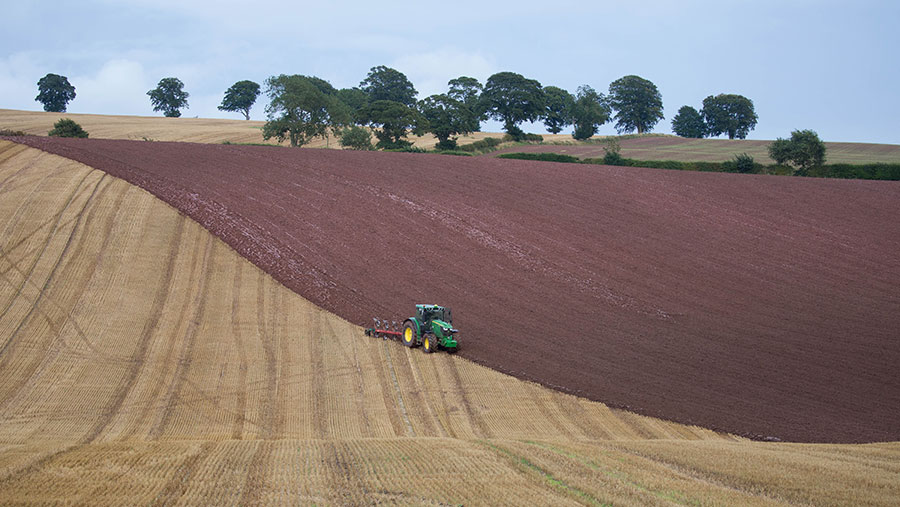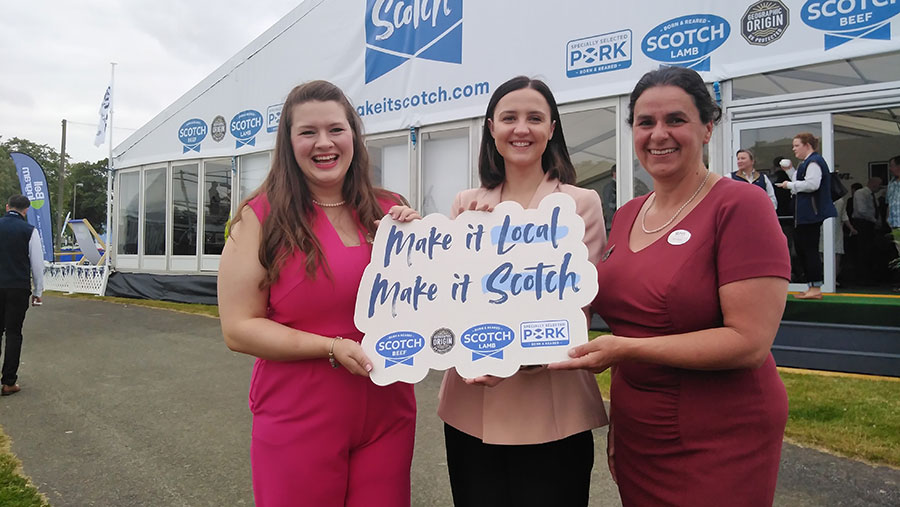Scotland has moral duty to maximise food production, says QMS
 © Tim Scrivener
© Tim Scrivener Scotland has a moral responsibility to lead the way towards a more food-secure future in the wake of the Ukraine war, according to the country’s red meat levy board.
Kate Rowell, chairwoman of Quality Meat Scotland (QMS), said the Covid-19 pandemic and the war in Ukraine had “shone the spotlight firmly on food security”.
As one of only a handful of countries in the world to have a projected resilient water supply in the future, Ms Rowell said Scotland is “ideally placed” to grow grass to convert into high-quality, nutrient-dense protein by livestock.
See also: Food security moves to heart of Scottish government policy
“With talk of global food shortages and international supply chain disruption ever more frequent, it’s surely our moral obligation to grow and rear as much of our own food as possible right here in Scotland,” she told delegates at a QMS breakfast briefing at the Royal Highland Show.

From left: QMS chief Sarah Millar, environment minister Mairi McAllan, and QMS chairwoman Kate Rowell at the Royal Highland Show © MAG/Philip Case
Farming is the bedrock of rural communities and buying local and supporting Scotch brands contribute to both economic and social sustainability, said Ms Rowell, a qualified vet and sheep and beef farmer from Peebleshire.
The QMS team has been working hard to promote industry brands of Scotch Beef PGI, Scotch Lamb PGI and Specially Selected Pork to as many consumers as possible, she added.
Meat reassurance
And when consumers choose these brands, they can be assured their meat “is locally produced, has been respectfully reared and is a naturally delicious choice”.
The target market now is people aged 18 to 39, many of whom identify as “flexitarians” and spend a lot of time on social media.
“The majority of these consumers, eight million across the UK, do still want to eat red meat as part of a healthy, balanced diet, but are increasingly concerned about the environment, animal welfare, sustainability and their own health,” said Ms Rowell.
As such, QMS Scotland is leading the net-zero pathway project to develop and implement a road map for the red meat supply chain to meet its greenhouse gas emission reduction targets of 75% by 2030, and net zero by 2045.
Attitudes changing
QMS chief executive Sarah Millar noted a “changing attitude” towards food security in the 12 weeks since her appointment.
She welcomed the recommendation from the Food Security Taskforce that the Scottish government should create a dedicated food security unit within the civil service, saying this would help ensure “our ability to produce food is protected, as it should be”.
Environment minister Mairi McAllan, standing in for Covid-struck rural affairs secretary Mairi Gougeon, told the QMS briefing the Scottish government was committed to the creation of new food security structures, adding that effective monitoring of food security would be vital going forward.
Meanwhile, QMS Scotland has committed to commission an independent impact analysis of its activities before the end of this financial year. The report will aim to demonstrate the return on investment of levy payers’ money and inform the future strategy.
